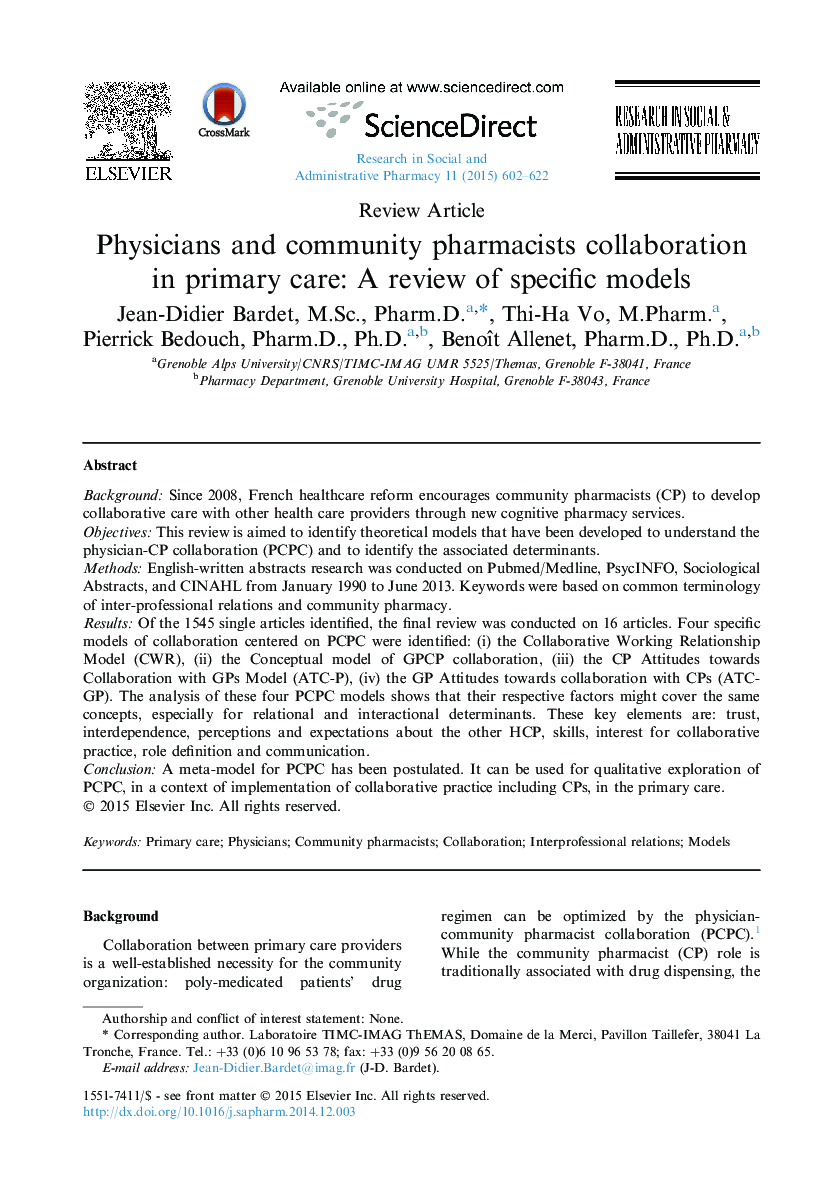| Article ID | Journal | Published Year | Pages | File Type |
|---|---|---|---|---|
| 2508283 | Research in Social and Administrative Pharmacy | 2015 | 21 Pages |
BackgroundSince 2008, French healthcare reform encourages community pharmacists (CP) to develop collaborative care with other health care providers through new cognitive pharmacy services.ObjectivesThis review is aimed to identify theoretical models that have been developed to understand the physician-CP collaboration (PCPC) and to identify the associated determinants.MethodsEnglish-written abstracts research was conducted on Pubmed/Medline, PsycINFO, Sociological Abstracts, and CINAHL from January 1990 to June 2013. Keywords were based on common terminology of inter-professional relations and community pharmacy.ResultsOf the 1545 single articles identified, the final review was conducted on 16 articles. Four specific models of collaboration centered on PCPC were identified: (i) the Collaborative Working Relationship Model (CWR), (ii) the Conceptual model of GPCP collaboration, (iii) the CP Attitudes towards Collaboration with GPs Model (ATC-P), (iv) the GP Attitudes towards collaboration with CPs (ATC-GP). The analysis of these four PCPC models shows that their respective factors might cover the same concepts, especially for relational and interactional determinants. These key elements are: trust, interdependence, perceptions and expectations about the other HCP, skills, interest for collaborative practice, role definition and communication.ConclusionA meta-model for PCPC has been postulated. It can be used for qualitative exploration of PCPC, in a context of implementation of collaborative practice including CPs, in the primary care.
